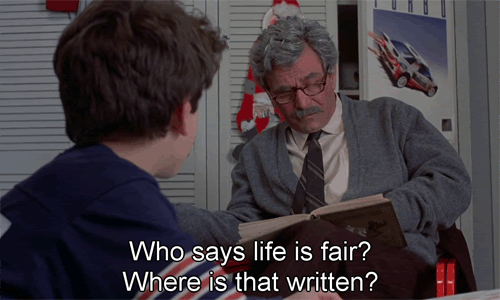
In the classic movie, The Princess Bride, a s-elf styled intellectual giant positions himself as a know it all about all things in the Universe.
"I happen to know," he says, "that the poison iocane comes from Australia, and as everyone knows, Australia is entirely peopled with criminals, and criminals are used to having people not trust them, as you are not trusted by me, so I can clearly not choose the wine in front of you. ...
But it's so simple. All I have to do is divine from what I know of you.
 Are you the sort of man who would put the poison into his own goblet or his enemy's? Now, a clever man would put the poison into his own goblet, because he would know that only a great fool would reach for what he was given. I am not a great fool, so I can clearly not choose the wine in front of you. But you must have known I was not a great fool, you would have counted on it, so I can clearly not choose the wine in front of me."
Are you the sort of man who would put the poison into his own goblet or his enemy's? Now, a clever man would put the poison into his own goblet, because he would know that only a great fool would reach for what he was given. I am not a great fool, so I can clearly not choose the wine in front of you. But you must have known I was not a great fool, you would have counted on it, so I can clearly not choose the wine in front of me."

Much as he knows for sure that he is in a "game" of wits and that one cup is free of poison --"it just ain't so" to quote Mark Twain. There is no game. Both cups contain iocaine and his adversary is immune to it. A fatal mistake by one who is 101% sure about something he knows close to nothing about.

There are similar know-it-alls in Alice's Blunderland:
'Clever' Long-Distance Call Patent Abstract, Judge Finds
The judge recalls from perfect, non-cross-examined memory:
"When I was a child I watched Lassie on television. Whenever June Lockhart, playing
Ruth Martin, wanted to reach someone by telephone, she rang Jenny at Central and got herself
connected to whomever she wished just by saying "Can you get the doctor?" or "I need to speak
to Timmy's teacher, Miss Jones." Ruth didn't have to dial any numbers at all. Jenny, the
intermediary, recognized Ruth as the caller from the line that rang at Central, and she knew
which receptacle to plug Ruth's line into so that Ruth's call to Central would be forwarded to its
intended recipient.

Nothing different happens here, except that [them new fangled] switching machinery and
computers (none of which is [sic] claimed) recognize who the incoming caller is and to whom she
wishes her call forwarded.
As defendant points out, a room full of telephone operators with
sheets of paper containing the look-up tables could accomplish the same result- expensively,
true, but the same result, using the same process."


No comments:
Post a Comment